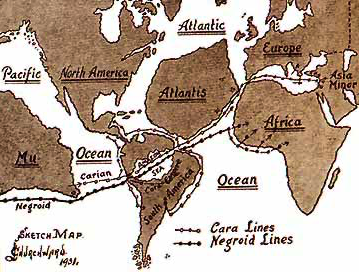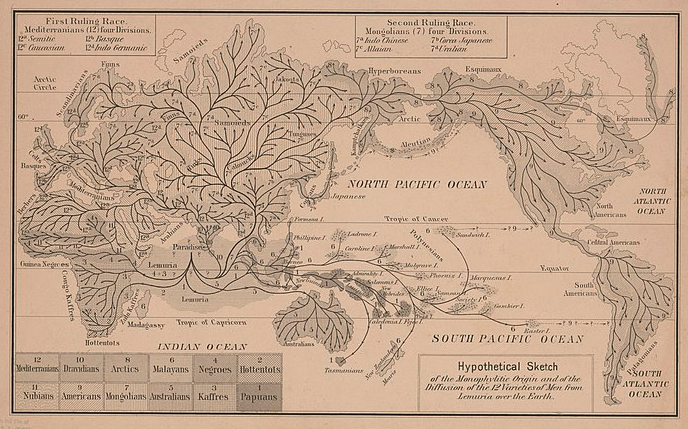
In 1864, zoologist Philip Sclater proposed a theory on the origins of humankind. He believed that there was a lost continent, Lemuria, where human life began.
As people developed and Lemuria became overcrowded, people left the island and began populating the rest of the world.
While the theory has long since been discredited, it does not hurt to look at early beliefs in Lemuria.
The following article was published in 1875.
The Birthplace of Mankind
It is supposed by geologists that under the waves of the Indian Ocean there sleeps a buried continent, and that Madagascar, Ceylon, and other islands lying to the northwest, are its higher lands, that, in the submergence of the main body, still kept their faces above the sea.
The name of “Lemuria” has been given by Prof. Sclater to this vanished land, and the theory had been projected, and found many supporters, that this was the birthplace of the human race.
It has always been a favorite conjecture that the cradle of the primitive man was located in some region within the tropics, where the climate was sufficiently warm to admit of his living in comfort with little or no clothing and shelter, and where fruits, herbs and roots suitable to his subsistence grew in spontaneous abundance throughout the year, making the struggle for existence an easy one for the human animal to sustain.

Such a region must have been the lost continent of Lemuria, and here it admirably fits the theories of scientists to place the first home of mankind.
The multitude of rude implements fashioned by the hand of man that have been found in Europe in the floors of caves and in the strata of river-valleys give a clue to his existence and condition many thousand of years ago, but he had then advanced beyond the first stage of savages, having already invented some arts by which to capture animals and defend himself against his enemies.
No remains have yet been discovered that testify to his life while he was still in the infancy of his career… But how easy to account for the lack of light on this period of his existence by the hypothesis that he was born and passed his early years on a continent that has since sunk beneath the sea, carrying with it all traces of his first rude savage state.
As Lemuria became overcrowded with the multiplying family of mankind, some of the more enterprising would wander away to other regions in search of the food that had grown scarce in their native home. And so, in process of time, it would come to pass that the various parts of the world would be peopled, and out of the difference in the experience of the separate groups of nomadic men would be developed the different races that have played a part in the history of the world.
Source: Public ledger. (Memphis, Tenn.), 23 Aug. 1875.

